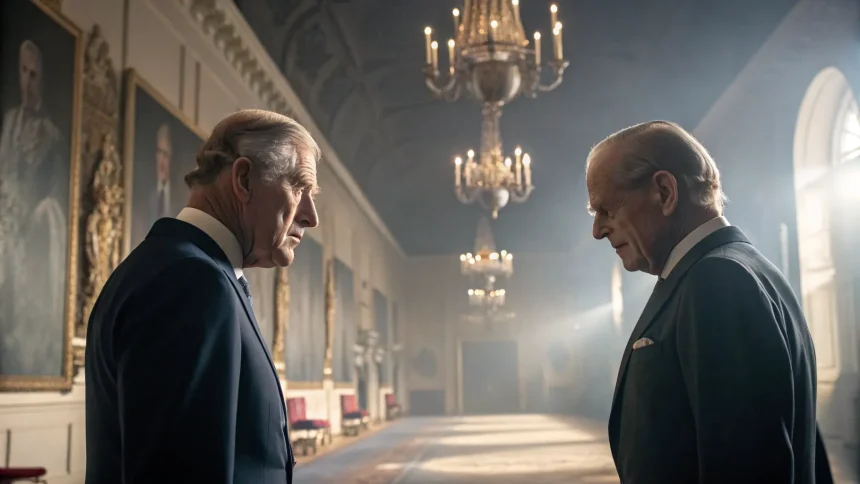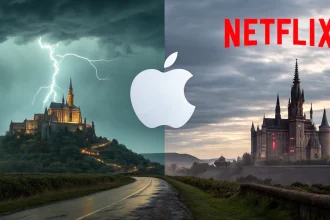The complex relationship between King Charles III and his late father, Prince Philip, Duke of Edinburgh, has long been a subject of public interest. Their strained father-son dynamic, particularly during Charles’s formative years, has become part of royal family lore.
The tensions between the current monarch and his father were significant enough to catch the attention of Netflix producers, who incorporated these conflicts into their popular royal drama series “The Crown.” The show portrayed their relationship as particularly challenging, highlighting the contrasting personalities and expectations that created friction between them.
A Clash of Personalities
Royal historians and insiders have often described the relationship between Charles and Philip as complicated by their fundamentally different temperaments. Prince Philip, known for his no-nonsense approach and military background, reportedly found his sensitive, artistic son difficult to understand.
Philip’s tough parenting style allegedly clashed with Charles’s more sensitive nature. The Duke of Edinburgh, raised in a naval tradition that valued stoicism and physical toughness, was said to have pushed his son toward similar ideals, creating tension when Charles showed interest in arts, philosophy, and environmental concerns.
The Educational Divide
One of the most documented sources of conflict between father and son was Charles’s education. Philip, an alumnus of Gordonstoun School in Scotland, insisted his son attend the same institution despite Charles reportedly finding the experience deeply uncomfortable.
Charles later described his time at Gordonstoun as “a prison sentence,” while Philip believed the school’s emphasis on physical challenges and self-reliance would toughen his son. This fundamental disagreement about Charles’s upbringing created lasting tension in their relationship.
Key points of contention included:
- Philip’s desire for Charles to develop more “traditional” masculine traits
- Charles’s artistic inclinations, which Philip reportedly dismissed
- Disagreements over Charles’s role and duties as heir to the throne
Public Perception and Media Portrayal
The Netflix dramatization in “The Crown” brought these private royal tensions to global audiences, though royal experts caution that the show takes creative liberties with historical events. The series portrays Philip as a demanding father who struggled to connect with his sensitive firstborn son.
While the show heightened public awareness of their difficult relationship, royal biographers have noted that the reality was likely more nuanced than television drama suggests. Some royal experts argue that despite their differences, father and son maintained respect for each other throughout their lives.
“The relationship between Charles and Philip was complex, but not without moments of mutual respect and understanding,” noted one royal historian. “Their differences were real, but so too was their shared commitment to the monarchy.”
In his later years, Prince Philip reportedly developed a greater appreciation for Charles’s environmental advocacy and organic farming initiatives, areas where the Prince had been ahead of his time. This gradual shift suggested some healing in their relationship before Philip’s death in 2021.
As King Charles continues to define his reign, the influence of his complicated relationship with his father remains evident in his approach to family, duty, and the monarchy itself. The tensions that once divided them have become part of the historical record, offering insights into the private struggles behind the public faces of royalty.









